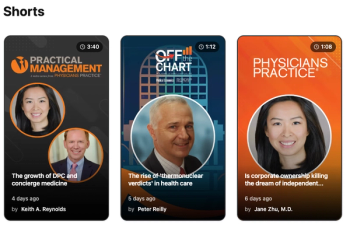
Second Circuit affirms HHS rejection of direct copayment assistance under anti-kickback statute
The decision addressed a proposed direct copayment assistance program of a pharmaceutical manufacturer which sought to help patients pay for an expensive drug.
On July 25, 2022, the U.S. Court of Appeals for the Second Circuit rejected an appeal brought by Pfizer, Inc. in a case that examines whether a “corrupt” intent is required to violate the Anti-Kickback Statute (AKS). The decision addressed a proposed direct copayment assistance program of a pharmaceutical manufacturer which sought to help patients pay for an expensive drug, and whether such a program may be subject to sanctions under the AKS’ prohibition on transfers of remuneration inducing referrals of drugs and other items or services reimbursed by federal health care programs. Funding of copayment assistance programs by pharmaceutical manufacturers to increase access to drugs for certain conditions has become a common practice following prior governmental guidance sanctioning the practice as long as certain safeguards are in place, but the Pfizer program posed a distinct issue for the government because the program provided direct assistance to patients looking to purchase Pfizer’s own drug. In short, the government has concerns that without sufficient independence and safeguards in place, such assistance programs can become alleged conduits for improper payments from pharmaceutical manufacturers to patients to influence purchase of the manufacturers’ drugs.
The Second Circuit upheld the Department of Health and Human Services’ (HHS) interpretation of the AKS as prohibiting the arrangement, which reiterates for health care organizations the importance of adhering to HHS guidance concerning federal fraud and abuse laws. The decision also emphasizes the government’s continued concerns with patient copayment assistance programs associated with pharmaceutical manufacturers that can directly influence purchases of the manufacturers’ drugs.
Background
The case arose from an Advisory Opinion requested by Pfizer from HHS in 2019, in which it requested review of its Direct Copay Assistance Program (Copay Program). The Copay Program sought to cover the copayment obligation of patients meeting specified criteria who are prescribed Pfizer’s drug Vyndamax (tafamidis), the only approved drug to treat a rare progressive heart condition.
In Advisory Opinion 20-05, HHS determined that the Copay Program “plainly would… involve remuneration to an individual to induce that individual to purchase an item or service” reimbursable under a federal health care program, and therefore the Copay Program would be “highly suspect” under the AKS because one purpose “would be to induce Medicare beneficiaries to purchase” the “federally reimbursable” drug.
Interestingly, HHS conceded in the Advisory Opinion that it relied on publicly available information related to Pfizer’s pricing of this drug, in part, to assess the fraud and abuse risk of the Copay Program in addition to the information presented by Pfizer.
The decision
Pfizer challenged the HHS opinion in federal court under the Administrative Procedure Act. Pfizer argued that in order to violate the AKS, it had to be shown that Pfizer offered the Copay Program with “corrupt intent” that improperly affected patient decision-making. The District Court disagreed, noting that there is nothing in the AKS that expressly requires corruption for the statute to apply, and Pfizer appealed.
The Second Circuit rejected Pfizer’s claim on appeal that a “quid pro quo” potentially subject to AKS scrutiny required corrupt intent, stating that not “every quid pro quo is inherently corrupt” and to hold otherwise could imperil “any number of commonplace transactions” such as commercial contracts that constitute quid pro quos (e.g., payment of money for goods). The Second Circuit also rejected Pfizer’s arguments that (i) the AKS is limited to corrupt payments (such as kickbacks, bribes, or rebates), and (ii) the willfulness requirement under the AKS is suggestive of corruption or improper influence, finding that Pfizer sought to go too far in its position and that the AKS’ willfulness mens rea requirement is more directly applicable to acts taken with a “bad purpose” to intentionally violate a known legal duty.
Finally, the Second Circuit rejected Pfizer’s arguments that HHS’ interpretation potentially criminalizes beneficial activities and could lead to absurd results and that HHS’ Advisory Opinion process was not rendered superfluous by its broad interpretation of the AKS’ applicability to the Copay Program.
Takeaways
This decision represents an important affirmation of HHS’ interpretive authority over the scope of the AKS and implicitly reinforces recent HHS guidance. The decision follows several enforcement actions and settlements between the government and pharmaceutical manufacturers related to the operation of copayment assistance programs (and related foundations) that subsidized patient copayments for manufacturers’ own drugs, which actions were referenced by HHS in its unfavorable Advisory Opinion at issue in this matter. Beyond the pharmaceutical context, the decision provides guidance for health care providers and suppliers regarding the broad scope of the AKS and the factors considered by the government in assessing arrangements thereunder. The decision is also notable for its procedural history, which clarifies the Advisory Opinion process, including the opportunities given for requestors to withdraw requests before an unfavorable opinion is issued as well as for requestors to push back on HHS’ interpretation(s) before the publication of an opinion.
Conor O. Duffy is a Partner with Robinson+Cole, who advises hospitals, physician groups, community providers, and other health care entities on general corporate and regulatory matters and health law issues. Conor can be reached at
Benjamin Daniels is Counsel in Robinson+Cole's Business Litigation Group. He assists clients in navigating complex litigation and regulatory disputes. Ben can be reached at
Newsletter
Optimize your practice with the Physicians Practice newsletter, offering management pearls, leadership tips, and business strategies tailored for practice administrators and physicians of any specialty.






